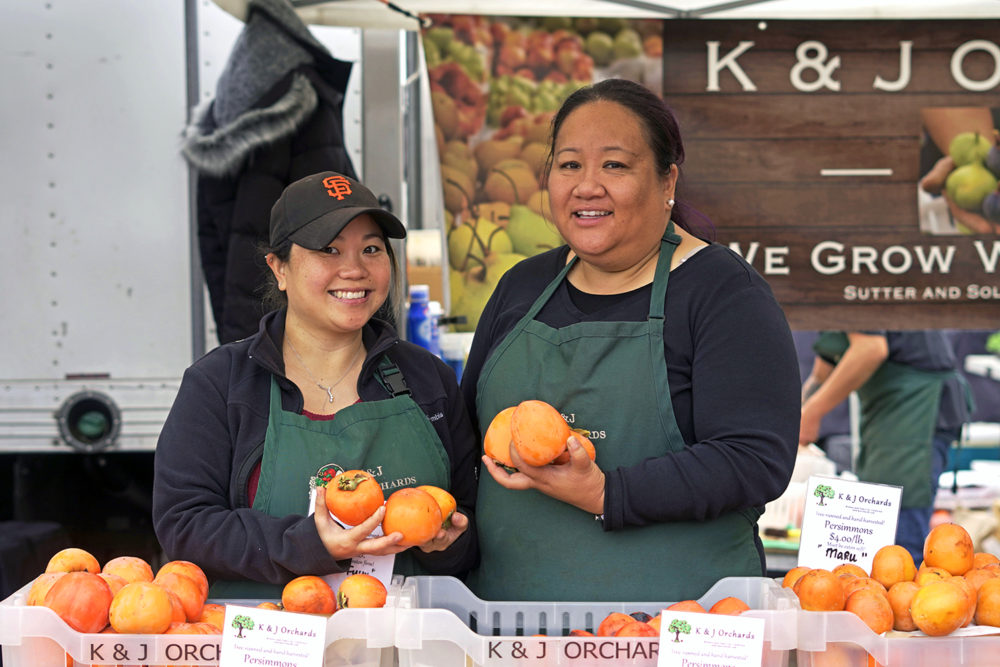K&J Orchards

People
Kalayada Ammatya, her daughters Aomboon (“Boonie”) and Onanong (“Ona”), and Aomboon’s husband Tim, with 12 full-time and 30 to 40 seasonal workers
Farmland
104 acres in Winters, about 67 miles to San Francisco
Farm History
Wife-and-husband team Kalayada Ammatya and James Beutel (“K” and “J”) started farming in 1982. James was a professor of pomology, the horticultural study and cultivation of fruit. Kalayada was born and raised in Bangkok, Thailand, and is a registered nurse. Aomboon and Tim now manage the farm and markets, and have developed strong relationships with restaurants around the Bay Area. The family believes in using natural growing methods and maximizing the use of the sun. They prune their fruit trees in the summer to provide the most sun exposure to each tree, which then stimulates growth and, they believe, leads to sweeter fruit.
